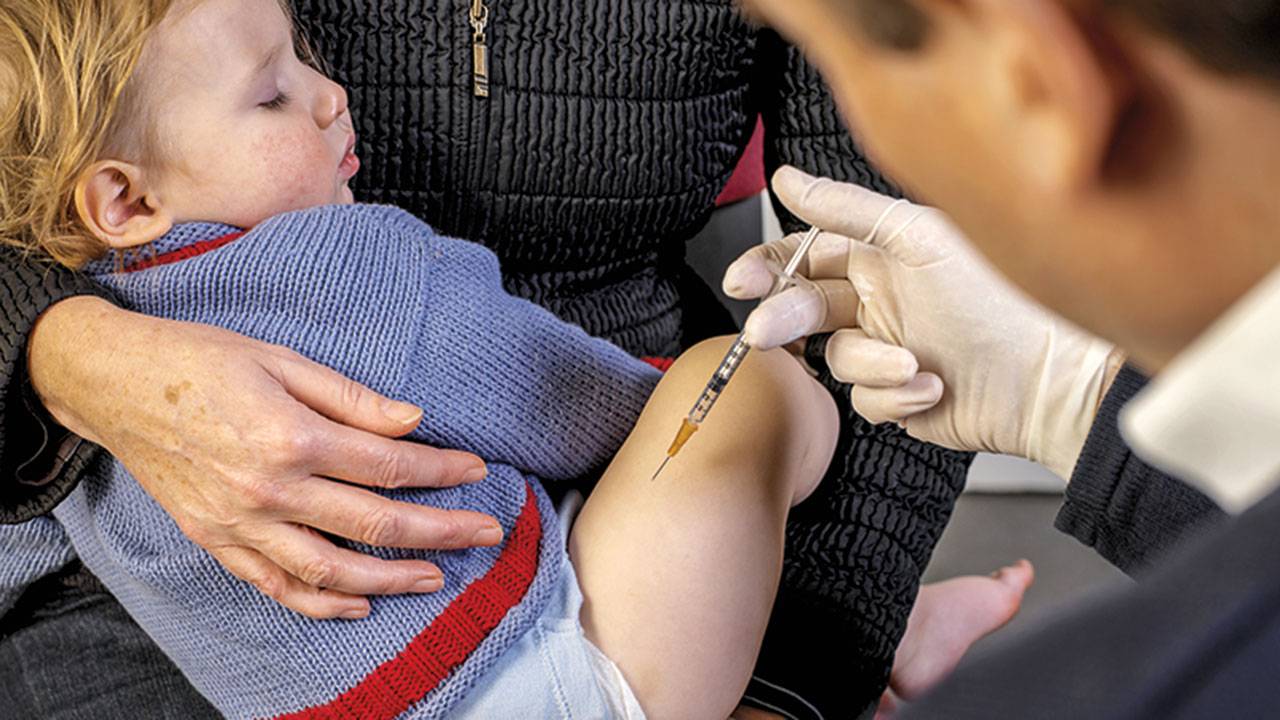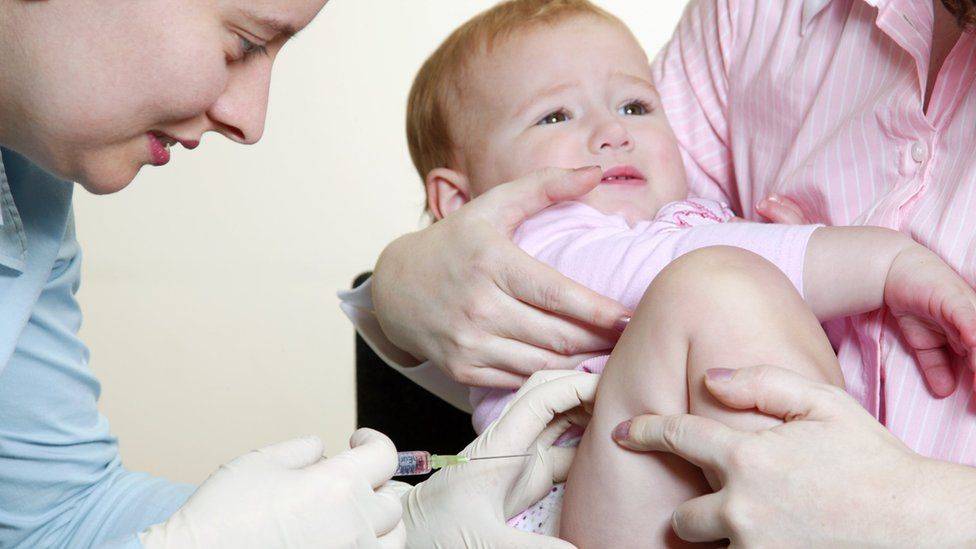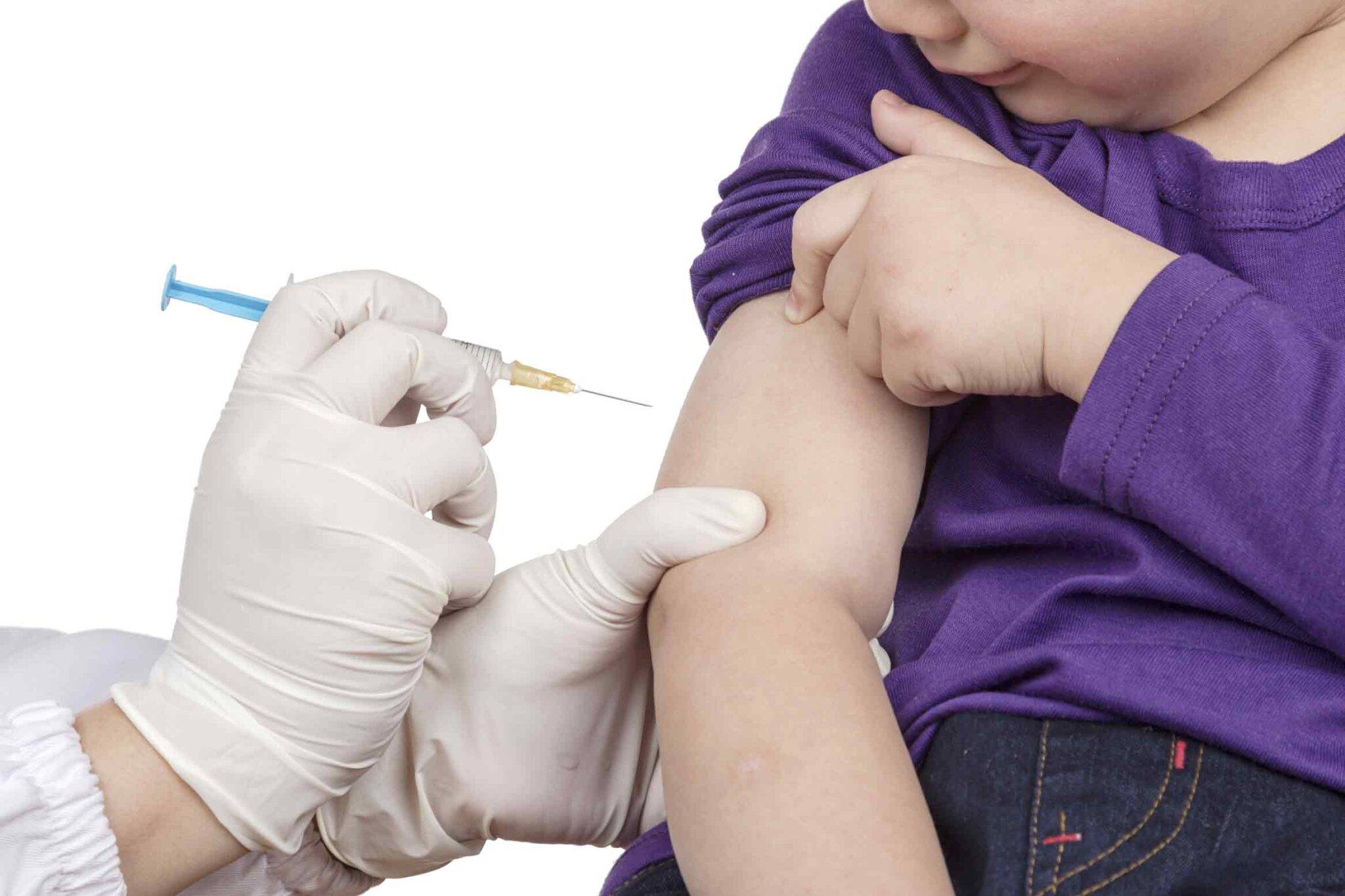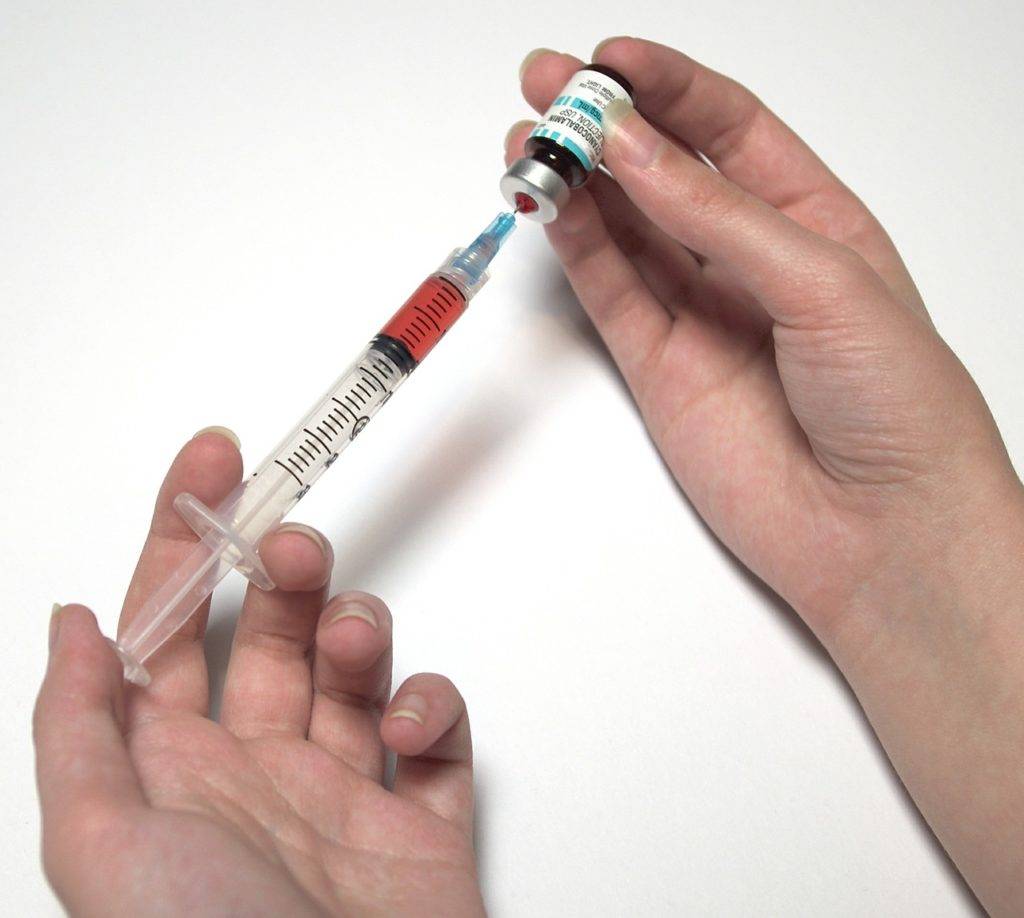Table of Contents
Rubella, mumps, and measles are dreaded illnesses since they lead to severe and lifelong consequences. And nobody escapes from it—infants and adults as well. Children can be best protected from these illnesses through the MMR vaccine.
Since 1971, when the US Food and Drug Administration (FDA) approved its use, millions of children, not only in the US but around the globe, have received the MMR (measles-mumps-rubella) vaccine. A hallmark of its safety record through the years.
The MMR vaccine has even become a component of routine pediatric immunizations. This prevalent use attests to its safety and efficacy. So families and communities have peace of mind for their children
In this article, Omega Pediatrics has pulled up information for your convenience. So you can fully comprehend the relevance of the MMR vaccination.

MMR Vaccine: How it Affects Children’s Health
The MMR vaccine plays a significant role in children’s health and overall well-being. Children receive essential protection from the virus-causing measles, mumps, and rubella diseases—serious illnesses leading to adverse complications.
It is worth noting that, according to the data released by the Centers for Disease Control and Prevention (CDC), more than 95% of the children given MMR shots have full protection from measles, mumps, and rubella infections throughout their lives.
The first dose of the MMR vaccine is important because it boosts immunity for your child. Your baby gets protection against the three viruses for many years after that.
Complications, such as meningitis, sepsis, and pneumonia, may affect children. And much more! These are life-threatening to babies under six weeks old.
Chickenpox, whooping cough, encephalitis, inflammation of the brain, diphtheria, tetanus, or lockjaw are a few complications that may inflict unvaccinated adults. Additionally, they may contract a specific strain of the hepatitis virus.
The unfortunate part is that these complications in adults may also affect exposed infants younger than 12 weeks old since they haven’t received their first MMR vaccine dose as well as other recommended immunizations.
The MMR Immunization Schedule
Get your children vaccinated with the MMR vaccine. Injection is the method of administration. According to the CDC, two doses are necessary to get full protection.
- The first dose is at 12–15 months of age.
- The second dose is at 4–6 years old.
In addition, infants traveling outside the US get the vaccine shots as early as 6 months of age. After which, they should still get the routine dose at 12-15 months and 4-6 years.
When the child is exposed to high-risk areas or when there’s an epidemic, they should be given a first dose at 12 months of age and the second dose at least 4 weeks later.
Older children, teens, and adults should also be vaccinated, with two doses, if they weren’t when they were younger.

When is the MMR Vaccine Not Allowed?
There are medical conditions that may affect the efficacy of the MMR vaccine. Here are the indicators when the vaccine is not allowed or avoided.
- Allergic reaction
Some children can’t be vaccinated against these infections due to allergic reactions or having an adverse reaction after being given another vaccine containing similar ingredients, such as diphtheria, tetanus, pertussis (whooping cough), and polio.
Vaccination is also not allowed when the child has had a serious allergic reaction to an earlier dose of the MMR vaccine or any of its components. This includes difficulty breathing, tightness of the throat, wheezing, hoarseness of voice, and a stuffy nose.
- Weak immune system.
Disorders affecting the immune system, such as cancer, can hamper how the vaccine works in the body. This also applies if the individual is undergoing chemotherapy or radiation therapy.
Likewise, if your child is taking medications or steroids that weaken their immune system, this situation warrants not taking the MMR vaccine.
- Pregnancy
Like any other vaccination, pregnant women should not have MMR shots until after childbirth. The effects of the vaccine on the baby while in utero aren’t yet established.
Consult with your doctor.
In any case, consult your child’s pediatrician about whether the vaccine is good for your child. However, if your child is sick with a cold or other minor illnesses, this should not prevent them from getting immunized.
In instances where your child has a low platelet count or has had a transfusion in the past few months, consult your doctor since these can interfere with the mechanism of the MMR vaccine.
What are the Associated Risks of the MMR Vaccine?
While there are some side effects associated with getting any vaccination, these are usually mild enough not to warrant any treatment beyond rest until they pass away on their own within 24 hours. Swelling at the injection site is common.
Allergic reactions are rare. Mild to moderate side effects include fever, swollen cheeks, febrile seizures, and mild joint pain.
The CDC reports that only one in a million people who get the vaccine will develop an allergic reaction to it. Most people who get vaccinated will not experience any side effects; however, if your child suffers from one, seek medical help immediately.
The MMR vaccine is indeed very safe, and it works. Vaccinating your child will outweigh the possible risks.

MMR Booster is Recommended for Unvaccinated Children, Teens, and Adults
It’s time to get started! Keeping up-to-date with your child’s immunizations is highly important for providing a timely protective barrier and maximizing the effects of the vaccine. Unfortunately, for varied reasons, not all parents are fully compliant.
For children who haven’t received MMR shots or those who were not able to comply with the recommended immunization schedule, booster shots should be provided.
Measles, Mumps, and Rubella: The Dreaded Diseases
Let’s delve deep into the serious consequences of the virus-causing measles, mumps, and rubella.
Measles
Measles is a highly contagious virus, and it can be life-threatening. It’s a serious disease that can lead to hospitalization and death, especially among young children, pregnant women, and adults with weakened immune systems.
The virus spreads through coughing or sneezing by an infected person. The virus can thrive on surfaces for up to two hours after an infected person touches them. The disease starts with a measles rash, which can appear anywhere on the body.
Other indicators of measles are fever, cough, red eyes, irritability, sore throat, runny nose or nasal discharge, diarrhea, or stomach pain with or without vomiting, which may last up to two weeks.
One of the serious complications of measles is pneumonia. One in twenty children with measles will develop pneumonia, which leads to serious complications or even death.
Measles can also lead to brain damage in some people. It may cause encephalitis, an inflammation of the brain.
With the advent of the MMR vaccine, measles has been eliminated in the United States since 2000. However, the measles virus strain still exists in other parts of the world.
Mumps
Mumps is similar to rubella but more serious. It’s another dangerous virus characterized by painful swelling of the parotid glands, which are located in your cheeks and jaw area. The inflammation may cause deafness and a disturbed sense of balance.
For males who contract the disease before or during puberty, there’s a greater chance of sterility issues. There are also links between mumps infection during pregnancy and birth defects in newborns. These are serious consequences that have lifelong impacts.
The virus spreads through coughing and sneezing. Still, it spreads through direct contact with infected people via droplets from their noses or throats when they cough or speak without covering their mouths properly.
Rubella
Rubella, also called German measles, causes fever, rash, and joint pain. Pregnant women should be extremely cautious of the mumps or rubella virus. Once they get infected, the virus is transmitted to the fetus, causing congenital deformities.
Being aware of the adverse effects of measles, mumps, and the rubella virus, children and adults should get vaccinated to have a layer of protection. Their serious complications have lifelong effects, something that parents can’t afford to disregard
Another common virus is chickenpox, a highly contagious infection that causes fluid-filled blisters on the skin. It is typically mild, but it can be serious in adults and children with weakened immune systems.
Transmission of chickenpox is by direct contact with fluid from the skin blisters or personal stuff like towels used by an infected individual.

MMR Vaccine and Autism: Is There a Causal Link?
The US has experienced a measles outbreak. The news was spreading like wildfire, which fueled the epidemic. There was unfounded news that made parents refuse to vaccinate their children against a preventable disease, such as measles. But why?
The alleged strong correlation between the MMR vaccine and autism has triggered parents’ refusal to allow their children to receive the shot. Parents believed that the MMR vaccine caused autism.
Research studies have countered this claim—a causal link doesn’t exist between MMR vaccines and autism. Therefore, getting the MMR vaccine will not cause autism in children.
Conversely, further studies found that the early signs of autism are detected at a time when children receive their first dose of the MMR vaccine. The timing of the diagnosis coincides with the MMR vaccination schedule. Timing is the culprit of the issue!
Don’t Miss MMR Shots for Your Child
Measles, mumps, and rubella are serious diseases that can have lifelong consequences if left untreated. Thanks to the medical breakthrough of the MMR vaccine! Your child will have a barrier of protection against these three diseases in one shot.
All children need to get their shots on time, so they’re assured of lifelong and full protection against these potentially deadly illnesses.
Your provider at Omega Pediatrics offers MMR vaccinations. On top of this, a vaccination schedule will be provided, along with counseling or any clarifications you may have regarding your child’s immunization requirements.
Reach out to Omega Pediatrics! We need to protect our children from dreaded diseases. Up-to-date vaccination is the answer.
FAQ
Why is the MMR vaccine important for children?
The MMR vaccine protects children from serious illnesses like measles, mumps, and rubella, preventing adverse complications and ensuring their overall health and well-being.
What is the MMR immunization schedule for children?
Children typically receive two doses of the MMR vaccine: the first dose at 12–15 months of age and the second dose at 4–6 years old. Infants traveling outside the US may receive an early dose at 6 months, followed by routine doses.
When is the MMR vaccine not allowed?
The MMR vaccine may not be suitable for children with allergic reactions to vaccine ingredients, weakened immune systems due to medical conditions or medications, or during pregnancy. Consult with a pediatrician for guidance.
What are the risks associated with the MMR vaccine?
While side effects are usually mild and temporary, they may include swelling at the injection site, fever, and mild joint pain. Severe allergic reactions are rare, occurring in about one in a million vaccinated individuals.
Is there a causal link between the MMR vaccine and autism?
No, research studies have debunked the claim of a causal link between the MMR vaccine and autism. The timing of autism diagnosis often coincides with the MMR vaccination schedule, but there is no evidence of a direct connection. Vaccinating children against measles, mumps, and rubella remains crucial for their health and well-being.



